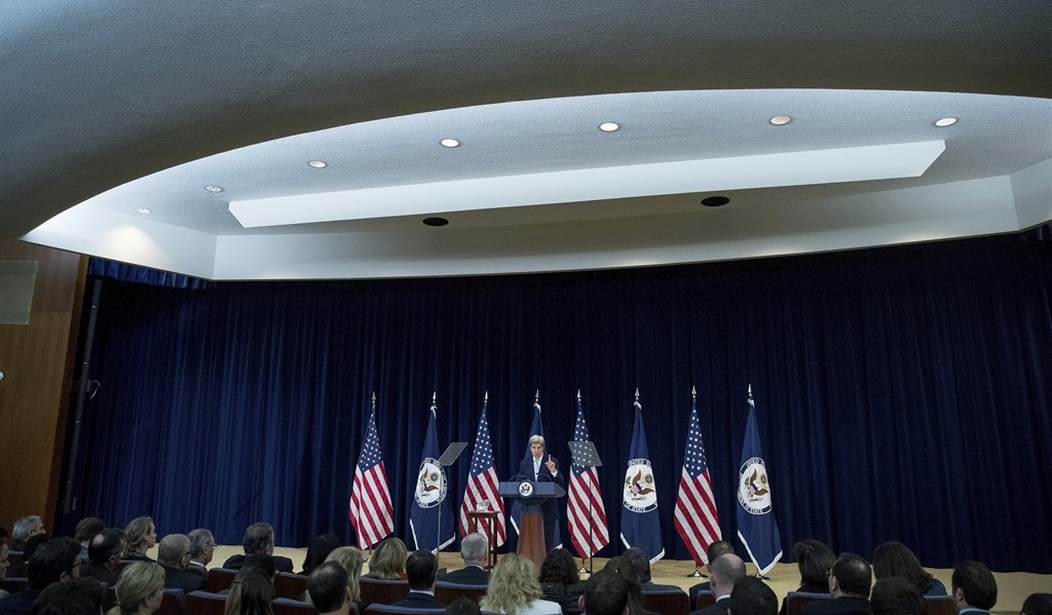Shortly after Benjamin Netanyahu won his bid for re-election as prime minister of Israel in March 2015, I wrote a column describing President Barack Obama as being "on track to go down as more hostile toward Israel than any president in the past 68 years." I warned that President Obama was so anti-Netanyahu that administration officials were signaling the president might change U.S. votes at the United Nations Security Council, "perhaps not opposing U.N. resolutions condemning the Jewish state on settlements and other issues," for example. Those words proved prophetic last week when the U.S. abstained from voting on a resolution condemning Israel for its settlement activity while giving only lip service to condemnation of terrorist activity against Israel and its citizens. That Obama waited until the eleventh hour of his presidency to seek revenge against Israel for not bending to his ambition to broker peace speaks volumes not just about his anti-Israel instincts but about his self-serving ambition to curry favor with the left, U.S.-Israel relations and even the Democratic Party's future support from the pro-Israel community be damned.
First let's be clear: The U.N. resolution and the support for it is not really about settlement policy. Israel, under successive governments, has had an on-again, off-again policy on building settlements in disputed territory, which has had little effect on the prospects for a comprehensive peace deal. The only true peace treaty negotiated with any of the countries that fought in the 1967 war was the Camp David Accords, agreed to by Israel and Egypt in 1978. With the signing of the accords at a White House ceremony that I was privileged to attend, Israel returned land seized in Sinai from Egypt and dismantled settlement there in 1982. In 2005, Israel dismantled all settlements in Gaza and four in the West Bank.
In return, Israel has been the target of repeated Palestinian terrorist attacks against its citizens -- and Palestinians have refused to negotiate in good faith. From September 2015 through November 2016, 42 people were killed by terrorists in Israel and another 602 wounded. Israeli restraint in the face of such unbridled viciousness is remarkable. Although peace talks have occurred under the auspices of the United States and other nations, it's the Palestinians' balking at accepting demands that Israel have the right to exist that has been the main impediment, not refusal of Israel to cede some land acquired in the 1967 war. Clearly, the fate of Jerusalem has been a stumbling block for both sides, but if the Palestinians and the Arab world in general were not so hostile to the very existence of a Jewish state, peace would have been possible by now.
Recommended
The very notion that Palestinians have a right to land over which they have never in history exerted control seems a stretch, but it's one that much of the world, including the U.S. under both Democratic and Republican presidents, has accepted at face value. Prior to World War I, the people we now call Palestinians -- and others in what are now the disputed territories -- lived under Ottoman rule, along with all Jordanians. After Allied forces defeated the Ottomans in WWI, the League of Nations created the British mandate over the area, empowering Britain to establish a "Jewish national homeland" while respecting the rights of the resident Arab population. Winston Churchill, who was then Britain's colonial secretary, divided the lands under British control, giving the country's Hashemite Arab allies the East Bank of the Jordan River to establish the Hashemite Kingdom of Jordan in 1922.
In November 1947, the U.N. voted to partition the remaining territory to establish two states, a Jewish Israel and an Arab Palestine. It was the Arabs' refusal to accept the establishment of any Jewish state in the territories that began what has now been a nearly 70-year stalemate on the creation of a Palestinian state. That recalcitrance has been marked by a complete refusal to make real peace, interspersed with wars against Israel by its neighbors in 1948, 1967 and 1973, as well as a continuous campaign of terrorism against the Jewish state and its citizens.
With a new administration taking office in Washington on Jan. 20, one can only hope that the U.S. will do more to tackle the real obstacles to peace in the disputed territories by pressuring the Palestinians at least as hard as the Israelis. A two-state solution is possible only if both parties are equally committed to living side by side peacefully, and so far, the Palestinians have yet to prove they are.

























Join the conversation as a VIP Member